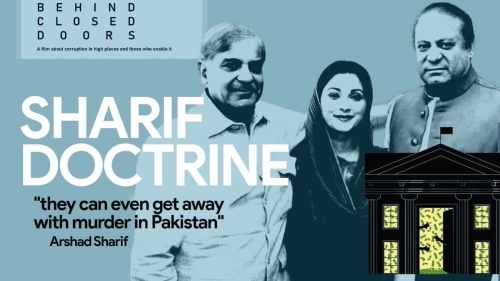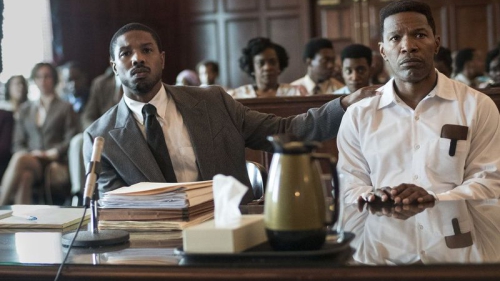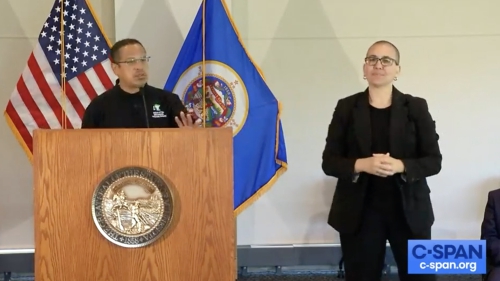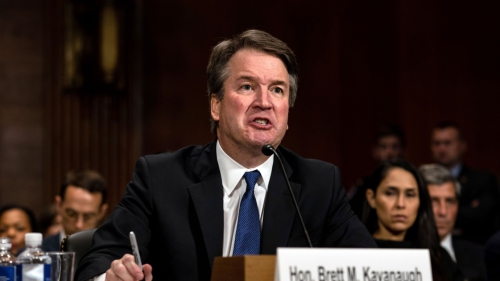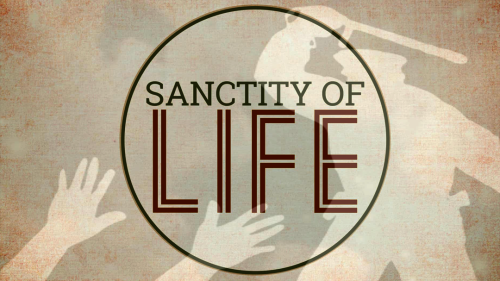State of Fear
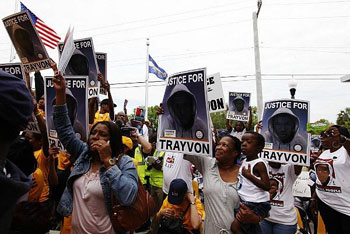 |
| Demonstrators hold signs aloft during a march and rally for Trayvon Martin in Sanford, Florida. Sanford is the Florida town where Trayvon Martin was shot dead on February 26 by neighborhood watch volunteer George Zimmerman. --Lucas Jackson/Reuters |
This was the headline: "Zimmerman, Martin's parents to face off in court."
The words, of course, merely summed up a moment in the news cycle last week. We, the news-consuming public, were primed - by CBS, but it could have been any mainstream outlet - for a tidbit of potential drama the next day in the hottest murder trial around right now. But in the process, we were also silently reminded, yet again, that everything is spectacle. At the level at which we call ourselves a nation, nothing is serious, not even matters of life and death.
There's something so painful about all this - painful beyond the horror of the crime itself, or the national murder rate. The 24-7 media trivialize the stakes and gleefully report the "courtroom drama" as a sporting event; but even more distressingly, the legal bureaucracy swings into motion without the least awareness of any value beyond its own procedures. It all happens with a certainty of purpose that generates the illusion that things are under control and social order prevails.
But none of this has anything to do with what social order actually requires when harm has occurred, which is . . . healing.
The next day, at George Zimmerman's bond hearing, he surprised his lawyer and everyone else by addressing Trayvon Martin's parents directly, if pathetically: "I wanted to say I am sorry for the loss of your son. I did not know how old he was. I thought he was a little bit younger than I am, and I did not know if he was armed or not."
While the words, which fail utterly as an apology, may have been completely self-serving, as the lawyer for the murdered boy's parents maintained, they may have been something else as well, and my sense is that they were - an anguished and flailing attempt to connect in some way, to bridge the terrible gap his act created. It's possible it has dawned on George Zimmerman that he killed a fellow human being for no reason and may be caught forever on the wrong side of a fundamental moral divide. Another term for this is hell - and his presence there has nothing to do with the outcome of his trial.
The coverage of the shooting and the legal procedures that have taken control of the matter betray no awareness that the fundamental and eternal need of all concerned is to heal the rift of Trayvon Martin's death. Such a thing, under the most ideal of circumstances, would take years; its accomplishment would be a miracle - but it happens, when victims or survivors are able to summon more courage than they thought they had and expand their own humanity toward forgiveness, reconciliation and love.
But in our legal system, we acknowledge only the need to determine guilt or innocence and the need to mete out punishment to the guilty - as though punishment closes the case and puts matters back in balance. In such a system, the victim himself quickly becomes irrelevant and, often enough, forgotten. And the lasting harm caused by the crime is utterly beside the point.
Indeed, crime and punishment are indivisibly part of the same wrong, or so it seems to me with increasing frustration and despair. The punishment is no more than society's recoil action, meting out further harm, solving nothing and perpetuating the violence - at enormous expense, of course.
Why do we have such a system?
"Logically, the opposite of love is hatred; but Jung and others have pointed out that the psychological opposite to love is fear," writes David R. Loy in an excellent essay called "Healing Justice : A Buddhist Perspective."
"By no coincidence," he goes on, "(Thomas) Hobbes' theory of a social contract makes fear the origin of the state, for the absolute authority of the state is the only thing that can protect my self-interest from yours. True or not, that has become our myth: We legitimize the state's justice insofar as we accept that it is needed to protect us from each other."
Our system of what we call justice is built on a foundation of fear and social isolation. It codifies and perpetuates both, at the same time erecting barriers that separate all who are caught in the system from the larger human emotions that could save us.
And the mainstream media, instead crying out for a healing-based legal system or reporting with awareness that such a system is possible, spirals backwards into ever more cynical exploitation of public fear. "Mugs in the news," for instance, now seems to be a mainstay on news websites: titillating mug shots of the unconvicted, obtained from local police departments, showing our fellow citizens in trouble, frozen in their awkward grimaces before the police camera. The point is ridicule, separation and perpetual spectacle: Look how bad they are!
Yet beyond the awareness of the media, systems of restorative or transformative justice are catching on around the world. Healing is an arduous process, but it's possible - and it saves people's lives. If we can break the separation we feel between those who have wronged us, if we can hear one another's stories, the future suddenly fills with possibility.
*****
Robert Koehler is an award-winning, Chicago-based journalist, contributor to One World, Many Peaces and nationally syndicated writer. His new book, Courage Grows Strong at the Wound (Xenos Press) is now available. Contact him at koehlercwgmail.com or visit his website at commonwonders.com.
2012 TRIBUNE MEDIA SERVICES, INC.
Topics: Crime And Justice, George Zimmerman Channel: Opinion
Views: 2645
Related Suggestions






